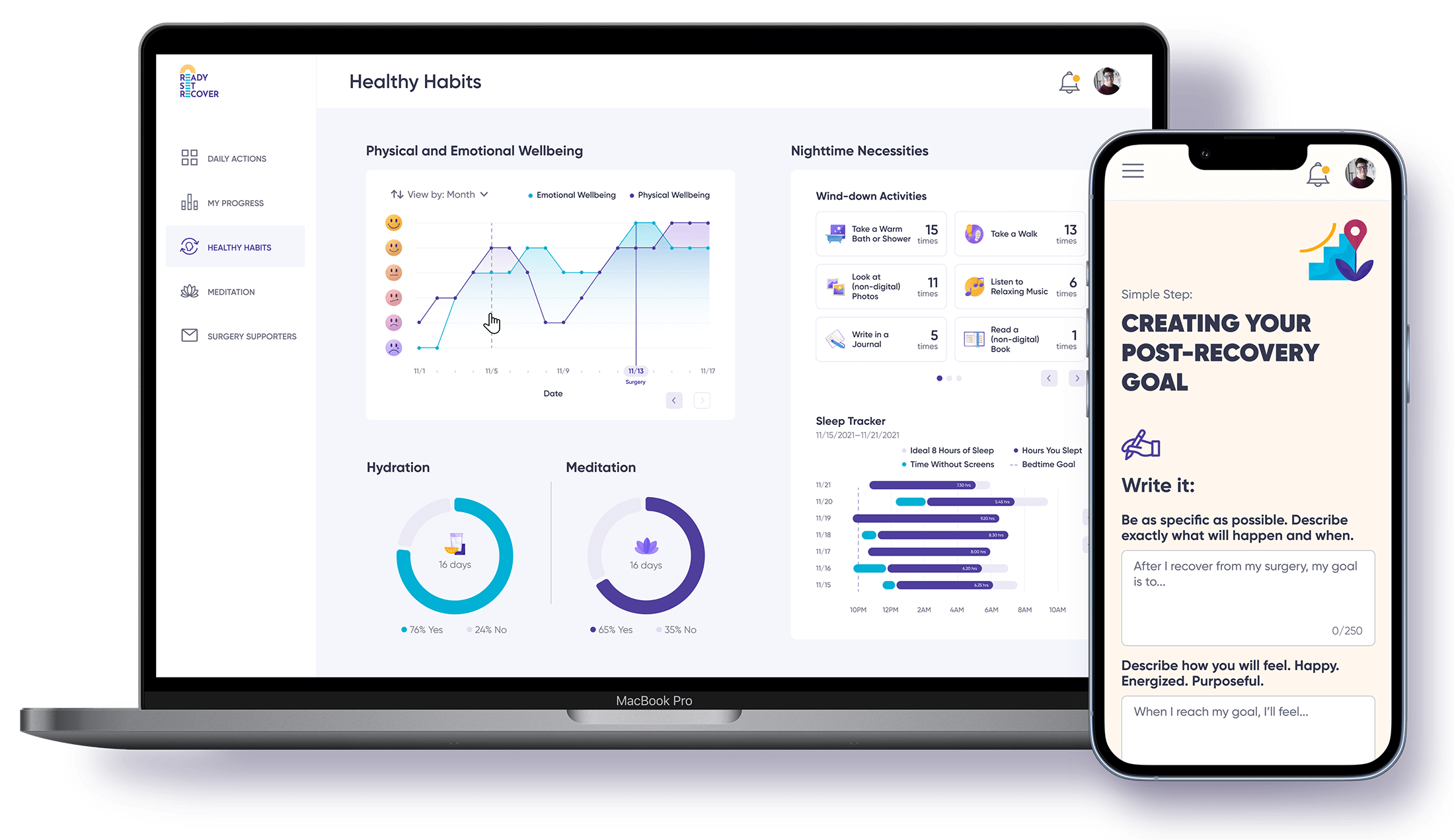Find Strength in Breast Cancer Support Groups


Navigating the complex journey of a breast cancer diagnosis can be overwhelming. One vital aspect to help manage this journey is connecting with others who share similar experiences through support groups for breast cancer. This blog post will guide you through the different support group options available, help you choose the right group for your needs, and introduce you to established breast cancer support organizations. Additionally, we’ll explore specialized support for unique circumstances and offer tips on how to get started with your chosen support group for breast cancer.
Key Takeaways
Explore available support groups to find the right fit for individual needs.
Options include online, in-person and telephone groups as well as specialized services for unique circumstances.
Attend with an open mind to build a supportive network that helps manage breast cancer diagnosis and treatment.
A brief overview of the breast cancer support groups and organizations mentioned in this article:
Living Beyond Breast Cancer (LBBC) - offers a variety of support services including educational programs, support groups, and resources tailored to the unique needs of those affected by breast cancer. Their private Facebook groups and virtual meetups provide a safe space for sharing experiences and gaining emotional support.
Breastcancer.org - offers a comprehensive online resource for breast cancer information and support, including discussion boards, expert advice, and virtual community meetups.
You Night Empowering Events - organizes in-person support groups and events aimed at empowering breast cancer survivors through community, education, and celebration.
Metastatic Breast Cancer Network (MBCN) - provides resources, support, and advocacy specifically for individuals living with metastatic breast cancer.
The National Breast Cancer Foundation - offers a variety of support services, including educational programs and monthly in-person and virtual support groups.
The Komen Breast Care Helpline - provides confidential support and information through trained specialists who can connect you with local resources and support groups.
The Cancer Support Community - is a global network offering support groups, educational workshops, and mind-body programs to support individuals affected by cancer.
The American Cancer Society - offers a wide range of support programs, including transportation assistance, lodging during treatment, and connections with other cancer survivors.
CancerCare - provides free professional support services, including counseling, support groups, and financial assistance for cancer patients and their families.
Ready Set Recover - is a wellness program designed to help patients prepare emotionally and physically for surgery and recovery through various supportive practices.
Male Breast Cancer Global Alliance - offers support and resources specifically for men diagnosed with breast cancer, including connections to other male survivors.
Imerman Angels - provides personalized one-on-one support for cancer patients and caregivers by connecting them with Mentor Angels who have experienced similar journeys.
Stupid Cancer - focuses on young adult cancer patients and survivors, offering support groups, counseling, and resources tailored to their unique needs.
METAvivor - is dedicated to supporting metastatic breast cancer patients through research grants, advocacy, and specialized support programs.
Young Survival Coalition - provides support and resources for young adults diagnosed with breast cancer, including peer support and educational programs.
What Are Breast Cancer Support Groups?

Breast cancer support groups play a key role in improving emotional well-being. They provide a safe space to share experiences, get practical advice, and feel less alone during treatment and recovery. These groups come in many forms—online forums, in-person meetups, phone-based support, and even alternative options—so individuals can choose what feels most comfortable
Online Support Groups
Online support groups offer convenience and accessibility, connecting patients with others going through similar experiences. These groups provide cancer-specific support through discussion boards and chat rooms, allowing members to share their stories, gain information, and find emotional support from the comfort of their homes. Some reliable online support groups for breast cancer patients include the private Facebook groups provided by Living Beyond Breast Cancer (LBBC) and the Discussion Boards and Virtual Community Meetups on Breastcancer.org.
When choosing an online support group, it’s worth considering aspects such as:
The engagement level of the community
Moderation and safety measures
Privacy and confidentiality policies
Accessibility
The group’s specific focus
Professional guidance
The availability of resources and information
In-Person Support Groups
In-person support groups offer face-to-face interaction and a sense of community for individuals diagnosed with breast cancer. These groups provide a platform for direct communication, allowing participants to develop a sense of fellowship among breast cancer patients. Notable in-person breast cancer support groups include:
Breastcancer.org’s Discussion Boards and Virtual Community Meetups
Local organizations such as You Night Empowering Events Support groups listed by the Metastatic Breast Cancer Network (MBCN)
To locate in-person breast cancer support groups in your area, consider consulting:
The National Breast Cancer Foundation website
The Komen Breast Care Helpline
The Cancer Support Community
The American Cancer Society
Local Visiting Nurse Association
Telephone Support Groups
Telephone support groups offer a more personal connection and support for those who prefer phone conversations. These groups provide emotional support, information sharing, coping strategies, and a sense of community for breast cancer patients over the phone. Some reputable telephone support groups for breast cancer patients include Breastcancer.org’s Discussion Boards, CancerCare’s telephone support groups, and the American Cancer Society’s toll-free helpline at 1-800-ACS-2345.
Confidentiality in telephone support groups is typically secured by ensuring that participants’ personal information and conversations remain confidential and are not shared outside of the group. To join a telephone support group, inquire with your healthcare provider, visiting nurse association, or local cancer center for recommendations, or contact organizations such as Breast Cancer.org or the American Cancer Society for resources and guidance.
Alternative Options
Apart from traditional support groups, alternative options like Ready Set Recover, a physician-vetted wellness program, can help patients prepare emotionally and physically for surgery and recovery. Ready Set Recover addresses topics such as:
sleeping
reversing or stopping fight or flight
goal setting
positive writing
purposeful actions
harnessing optimism
meditation
gratitude
positive framing
expectation setting
Utilizing Ready Set Recover prior to surgery can assist individuals in achieving a greater sense of relaxation, preparedness, and control, which can result in an improved and expedited recovery.
The Surgery Supporter functionality in Ready Set Recover allows participants to:
Foster a supportive online community with friends and family
Share tasks that supporters can assist with
Facilitate constructive communication through a chat area.
Choosing the Right Support Group for Your Needs

Choosing the right support group for your needs guarantees that you receive the most pertinent and helpful support during your breast cancer journey. To find the best fit, consider assessing your support needs, identifying the group’s focus, and taking into account group demographics. Doing so allows you to identify a support group that suits your unique circumstances, offering you the emotional support, resources, and connections needed to manage your breast cancer diagnosis.
Assessing Your Support Needs
When selecting a breast cancer support group, it’s important to evaluate your support requirements. Consider the following:
The type of support needed, such as emotional or informational
Your individual preferences
Any particular challenges or concerns you have
The proficiency of facilitators
For example, if you are looking for emotional support and connection with others who have gone through similar experiences, a support group that focuses on providing a secure environment for expressing emotions and experiences may be more suitable. Conversely, if you are in search of practical information and resources about treatment options, a support group that focuses on education and empowerment may be a better fit.
Identifying Group Focus
The focus of a breast cancer support group can have a considerable influence on its suitability for an individual. Various support groups may have different focuses, such as:
Emotional support
Education
Survivorship
Particular treatment modalities
Considering Group Demographics
Considering group demographics is a crucial aspect of finding the right support group for your needs. Factors such as age, gender, and cancer stage can influence the level of support required and the capacity to relate to others in the group. For example, younger women may prioritize fertility preservation and the effect of treatment on their family planning, whereas older women may be more preoccupied with managing comorbidities and sustaining quality of life. Gender-specific support groups can create a secure environment for individuals to share experiences and concerns that are exclusive to their gender.
Taking group demographics into account can help ensure that breast cancer support groups fulfill the unique needs of individuals at different stages of life.
Connecting with Established Breast Cancer Support Organizations

Established breast cancer support organizations are invaluable resources for patients seeking support throughout their cancer journey. These organizations provide a wide range of support services, from online discussion boards to in-person support groups.
Establishing connections with organizations like the American Cancer Society, National Breast Cancer Foundation, and Cancer Support Community, allows you to access a wide range of resources and support tailored to your unique circumstances.
American Cancer Society
The American Cancer Society offers a range of support programs and resources for breast cancer patients, including:
Assistance with transportation to treatment
Lodging during treatment
Hair loss and mastectomy products
Connecting with other cancer survivors
24/7 cancer helpline
Financial assistance programs
The Cancer Survivors Network, an online platform by the American Cancer Society, facilitates connection between cancer patients and caregivers, allowing them to share similar experiences and provide support to one another.
National Breast Cancer Foundation
The National Breast Cancer Foundation (NBCF) is another valuable resource for breast cancer patients and their families. NBCF provides monthly in-person and virtual support groups, creating a supportive community for those affected by breast cancer.
To access the online support groups provided by NBCF, visit their website and explore their private Facebook groups for support. Establishing a connection with the National Breast Cancer Foundation enables you to find a support group that satisfies your needs and preferences, be it online or in-person.
Cancer Support Community
The Cancer Support Community is a global network of support programs comprising over 175 locations worldwide. Their mission is to:
Ensure that all individuals affected by cancer are endowed with knowledge
Fortify individuals affected by cancer with action
Support individuals affected by cancer with community.
The Cancer Support Community offers a variety of programs to support individuals affected by cancer, such as:
Support groups
Educational workshops
Mind-body programs
Online resources
Establishing a connection with the Cancer Support Community enables you to find a diverse range of support services tailored to your needs, either locally or through their online resources.
Specialized Support Groups for Unique Circumstances

Specialized support groups cater to unique circumstances, such as men with breast cancer, young adults, and metastatic breast cancer patients. These groups provide tailored support and resources to address the specific challenges and needs of individuals in different situations.
Examining these specialized support groups allows you to find a community that empathizes and supports your unique experience with breast cancer.
Support for Men with Breast Cancer
Men with breast cancer can also find support through organizations like the Male Breast Cancer Global Alliance and Imerman Angels. The Male Breast Cancer Global Alliance offers assistance and links to other men who have been diagnosed with breast cancer. Imerman Angels provides support to men diagnosed with breast cancer through their Mentor Angel program, which offers personalized one-on-one cancer support. Mentor Angels are comprised of cancer survivors or caregivers who have experienced the same type of cancer, providing guidance and emotional support without any cost.
Establishing connections with these organizations allows breast cancer survivors, including men with breast cancer and their family members, to find a supportive community that caters to their unique needs.
Young Adult Breast Cancer Support
Young adult breast cancer patients have distinct needs and challenges compared to older individuals. Programs like Stupid Cancer provide support and resources specifically for young adult cancer patients, survivors, and caregivers. Stupid Cancer offers:
Counseling
Support groups
Financial assistance
Online resources
These resources help young adults navigate their cancer journey with the support of a community that understands their unique challenges.
Establishing connections with specialized support groups like Stupid Cancer allows young adult breast cancer patients to find the emotional support and resources they need.
Metastatic Breast Cancer Support
Support for metastatic breast cancer patients can be found through organizations like METAvivor. METAvivor focuses on providing support to women and men suffering from Stage 4 breast cancer or metastatic breast cancer. They offer research grants for metastatic breast cancer research, helping to advance the understanding and treatment of this advanced stage of breast cancer.
Other organizations, such as the Metastatic Breast Cancer Network (MBCN) and Breastcancer.org, provide support and resources tailored to metastatic breast cancer patients. Establishing connections with these specialized support groups allows metastatic breast cancer patients to find the comprehensive care and support they need.
How to Get Started with a Breast Cancer Support Group

Finding the right breast cancer support group is just the beginning of your journey. Getting started with a support group involves locating local and online groups, attending your first meeting, and building a supportive network with fellow members. Active participation in your chosen support group helps you find the emotional support, resources, and connections needed to manage your breast cancer diagnosis.
Finding Local and Online Groups
To find local and online support groups, consult with patient navigators, social workers, visiting nurse association, or use online resources such as Breastcancer.org, LBBC (Living Beyond Breast Cancer), and Young Survival Coalition. These resources can help you find support groups that align with your needs, preferences, and location.
Additionally, you can ask your healthcare provider or local cancer center for recommendations, as they may be aware of support groups in your area or online that cater to your specific needs.
Attending Your First Meeting
When attending your first breast cancer support group meeting, it’s important to:
Have an open mind
Be prepared to share your story and listen to others
Remember that everyone in the group is there to provide and receive support
Know that it’s normal to feel nervous or unsure about what to expect
Understand that you are not alone in your journey
During the meeting, you may discuss personal experiences, treatment options, and offer emotional support to fellow group members. If the first group you attend doesn’t feel like the right fit, don’t be discouraged; there are many groups out there, and you may need to try a few before finding the one that meets your needs.
Building a Supportive Network
Building a supportive network within your breast cancer support group is key to maximizing your experience. Here are some tips to help you build that network:
Actively participate in group discussions
Connect with fellow members, both during and outside of meetings
Share your experiences and listen to others
Gain valuable insights, practical advice, and emotional support from those who understand your journey
By following these tips, you can create a strong and supportive network within your breast cancer support group.
A supportive network can make a significant difference in your ability to cope with your breast cancer diagnosis and treatment, as well as reducing the risk of breast cancer recurrence, providing you with the resources and connections needed to navigate this challenging time in your life as a breast cancer survivor.
Find the Right Breast Cancer Support Groups for You
Support groups play a vital role in helping breast cancer patients navigate their cancer journey. By exploring different support group options, choosing the right group for your needs, and connecting with established organizations, you can find the emotional support, resources, and connections needed to cope with your diagnosis and treatment. Whether you’re a man with breast cancer, a young adult, or a metastatic breast cancer patient, there are specialized support groups available to address your unique needs. Don’t hesitate to reach out and find the support you need to face your breast cancer journey with strength and resilience.
Frequently Asked Questions
Are there specific support groups for different stages of breast cancer?
Yes, there are support groups tailored to different stages of breast cancer. These groups provide specialized support for early-stage breast cancer, metastatic breast cancer, and even for those in remission. By joining a group that aligns with your specific stage, you can receive more targeted advice and support.
How can I find a reputable breast cancer support group?
To find a reputable breast cancer support group, you can start by asking your healthcare provider or local cancer center for recommendations. Additionally, organizations like the American Cancer Society, Breastcancer.org, and the National Breast Cancer Foundation offer directories and resources to help you find both local and online support groups.
What should I expect in my first support group meeting?
In your first support group meeting, expect to meet individuals who are at various stages of their breast cancer journey. You will have the opportunity to share your story, listen to others, and gain insights and support. It’s normal to feel nervous, but remember that everyone is there for mutual support and understanding.
Are there any costs associated with joining a breast cancer support group?
Many breast cancer support groups are free to join, especially those run by non-profit organizations. However, some specialized programs or private groups may have fees. Always check with the group or organization beforehand to understand any potential costs.
How often do breast cancer support groups meet?
The frequency of meetings varies by group. Some meet weekly, while others may meet bi-weekly or monthly. Online support groups often provide continuous access to forums and chat rooms, allowing for more flexible participation.
Can family members or caregivers join breast cancer support groups?
Yes, many support groups welcome family members and caregivers. There are also specific groups designed to provide support for caregivers, helping them cope with the emotional and practical challenges of supporting a loved one with breast cancer.
What if I don't feel comfortable in a support group?
It’s important to find a support group where you feel comfortable and understood. If the first group you try doesn’t feel like the right fit, don’t hesitate to explore other options. There are many different types of support groups available, and finding the right one can make a significant difference in your emotional and mental well-being.
What types of breast cancer support groups are available?
Various types of support groups for breast cancer patients, such as online, in-person, telephone, and alternative options, are available.
How do you support someone with breast cancer?
Be there for them—listen without judgment, offer practical help like meals or rides, and check in regularly. Emotional support matters, but so does respecting their needs and boundaries.







